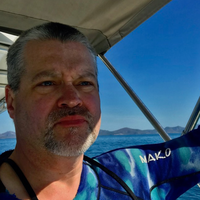Mars Needs Women
They eat, breathe, and weigh less than men, which, in the context of a months-long space flight, could be a real game-changer. Plus, they bring soft skills that might make the trip a lot more pleasant.
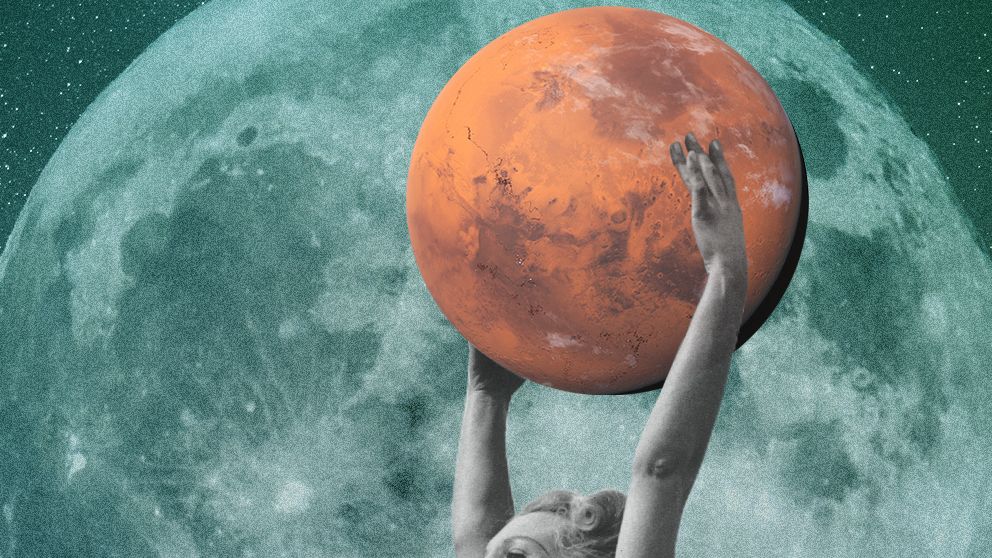
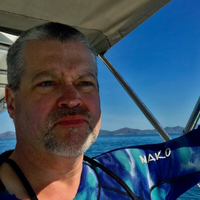
A low-budget sci-fi movie from 1968 begins with this ominous broadcast from alien invaders headed for Earth: “Mars needs women!”
The best and brightest scientists from Planet Earth are currently working on making that trip in the other direction. In the process, they're testing a theory that women could be the most efficient option for colonizing the Red Planet. HI-SEAS, the Hawaii Space Exploration Analog and Simulation complex, recently concluded a one-month all-female mission simulation to examine how such a crew would handle life where only Mars Rovers have gone before. Located about 8,200 feet above sea level on the Big Island’s Mauna Loa mountain range, the HI-SEAS habitat is a 1,200-square-feet dome perched on the land’s Martian-like geology of rocks and lava. It has already served as the site of multiple long-term (four months to a year) simulated missions for NASA and a variety of private research groups.
With the Red Planet 249 million miles and about eight months (via rocket) away from Earth, every resource onboard ship and then on Martian soil would be precious. Weight is the enemy for rocket launches and proposed long space journeys, with resources, equipment, and crew needs constantly balanced against the physics of fuel supply. Any Mars-bound ship would need plenty of fuel, even for a one-way journey—and every pound of food is a pound of fuel not onboard.
The crew of the all-female, HI-SEAS Mars mission simulation from left to right: Beth Mund, Dr. Michaela Musilova, Amanda Knutson, Dr. Brandy Nunez, Richelle Gribble and Chelsea Gohd.
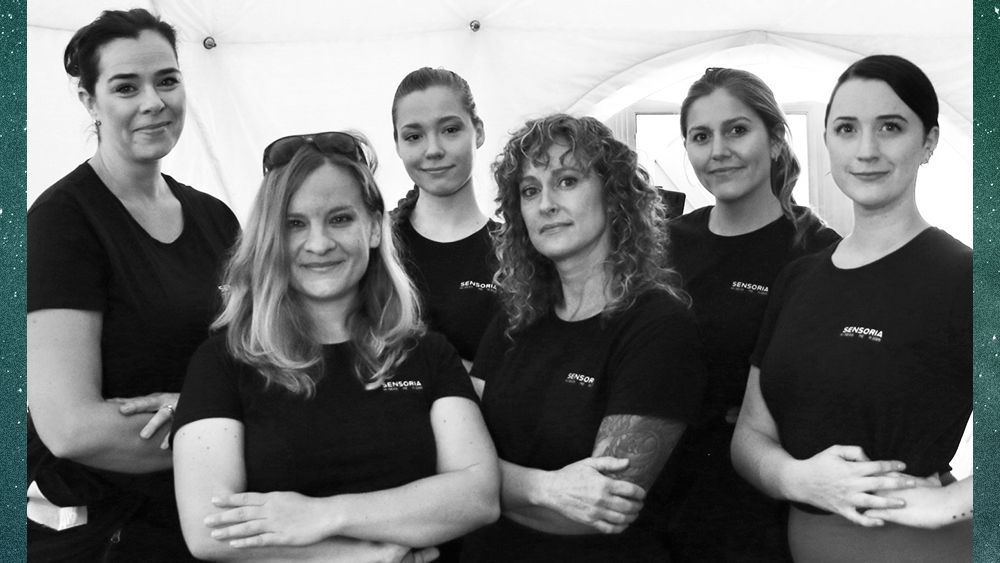
Some of the crew members of the all-female, HI-SEAS Mars mission simulation (from left to right): Beth Mund, Dr. Michaela Musilova, Amanda Knutson, Dr. Brandy Nunez, Richelle Gribble, and Chelsea Gohd.
Since women generally eat and drink less than men—and often weigh less and therefore consume less oxygen—it’s a possibility that the first crew to set foot in the red dust could be all-female. NASA Scientist Geoffrey Landis, an expert on power sources and propulsion, laid out his case for a female Mars crew in a research paper available in a Harvard archive. He writes: “On the average, women have lower mass and take less volume than males, and use proportionately less consumables.”
But it’s not only physical attributes that make women a better choice for Mars missions. Landis proposes they could get along better locked up for months in a confined space en route to a new planet. “In addition,” Landis writes, “sociological research indicates that a female crew may have a preferable interpersonal dynamic, and be likely to choose non-confrontational approaches to solve interpersonal problems.”
“With missions like these, you watch a group of strangers become a family,” says Michaela Musilova, PhD, director of HI-SEAS Missions, who commanded the latest simulation. As an astrobiologist focusing on life in extreme environments, she has taken charge of 30 such simulated explorations and found no change in efficiency between all-women and coed missions. However, with the exclusively female crew, she says,“I found the women bonded more closely. These women came together and shared more quickly than coed crews I commanded.” All-male crews, she says, generally focused on “direct problem-solving” and are “more hands-on.”
Get exclusive access to fashion and beauty trends, hot-off-the-press celebrity news, and more.
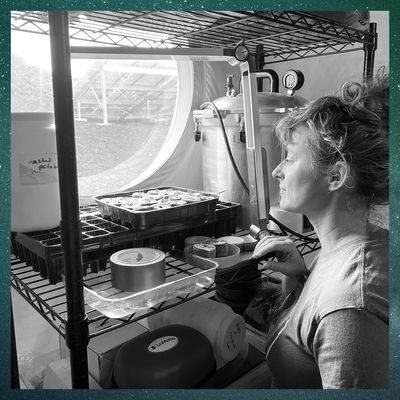
Dr. Brandy Nunez monitors her daily work inside the HI-SEAS Mars mission simulator.
The most recent HI-SEAS simulation gathered Musilova and six other women of varied backgrounds and professions as “analog astronauts.” To explore what such a group of multitalented women might bring to Mars life, the group's ranks went beyond the world of STEM and included a pair of scientifically-minded musicians: Chelsea Gohd, who is also a space and science writer and Dr. Brandy Nunez, also a microbiologist and veterinarian. Alongside the musicians were Sian Proctor, PhD, a geoscientist and professor who served on simulations in Poland and Utah in addition to two at HI-SEAS; Amanda Knutson, an active-duty Air Force member who calls herself an "Astronaut Hopeful" on Instagram; Beth Mund, science communicator and podcast host; and Richelle Gribble, an artist, curator, and gallerist.
Gribble says selecting such a diverse group of women examines what people of different backgrounds bring to problem solving and essential daily activities. The podcaster sent out regular "broadcasts home" from inside the simulation. Gribble created works of art. Past missions compared food systems (prepackaged instant meals vs. shelf-stable ingredients), and collected data on cohesion and performance and use of power and water.
Proctor values the opportunity to put women at the forefront of space flight and challenges the idea that astronauts can only come from the world of STEM. She thinks this “art heavy” all-women mission challenged the concept of who can head to space. “Simulations like this give us a chance to think about what other professions, like artists, bring to the mix when locked down together,” she says. “The idea is to explore what advantages different skill mixes bring to a crew, to see what works the best.”
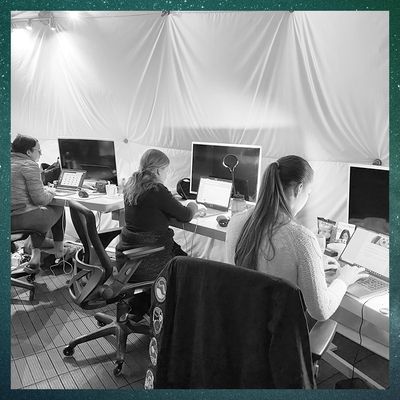
The crew of the all-female HI-SEAS mission stays in virtual contact with the outside world from inside the locked down Mars mission simulator.
“There’s the argument that an all-female crew would make a significant difference in resources,” says Proctor. “A mission like this better informs the decision before we eventually go to Mars.”
As the mission’s vice commander, Gribble's responsibilities included checking up on all of the projects underway within the habitat that simulate life in space. The mission assumes the crew already arrived on Mars via long term space travel. Daily life at HI-SEAS then becomes a mix of necessary survival activities, such as growing food and purifying water, and personalized projects exploring the diverse skills the women would bring to a distant world.
Gribble witnessed how the women learned to support one another when solving problems. “Space offers new challenges as every task brings on new issues,” she says. “As we worked together, this mission offered the opportunity to explore what everyone would bring to the table in the future of females in space. I think the most important opportunity that comes out of this is other women seeing themselves in our shoes.”
RELATED STORIES
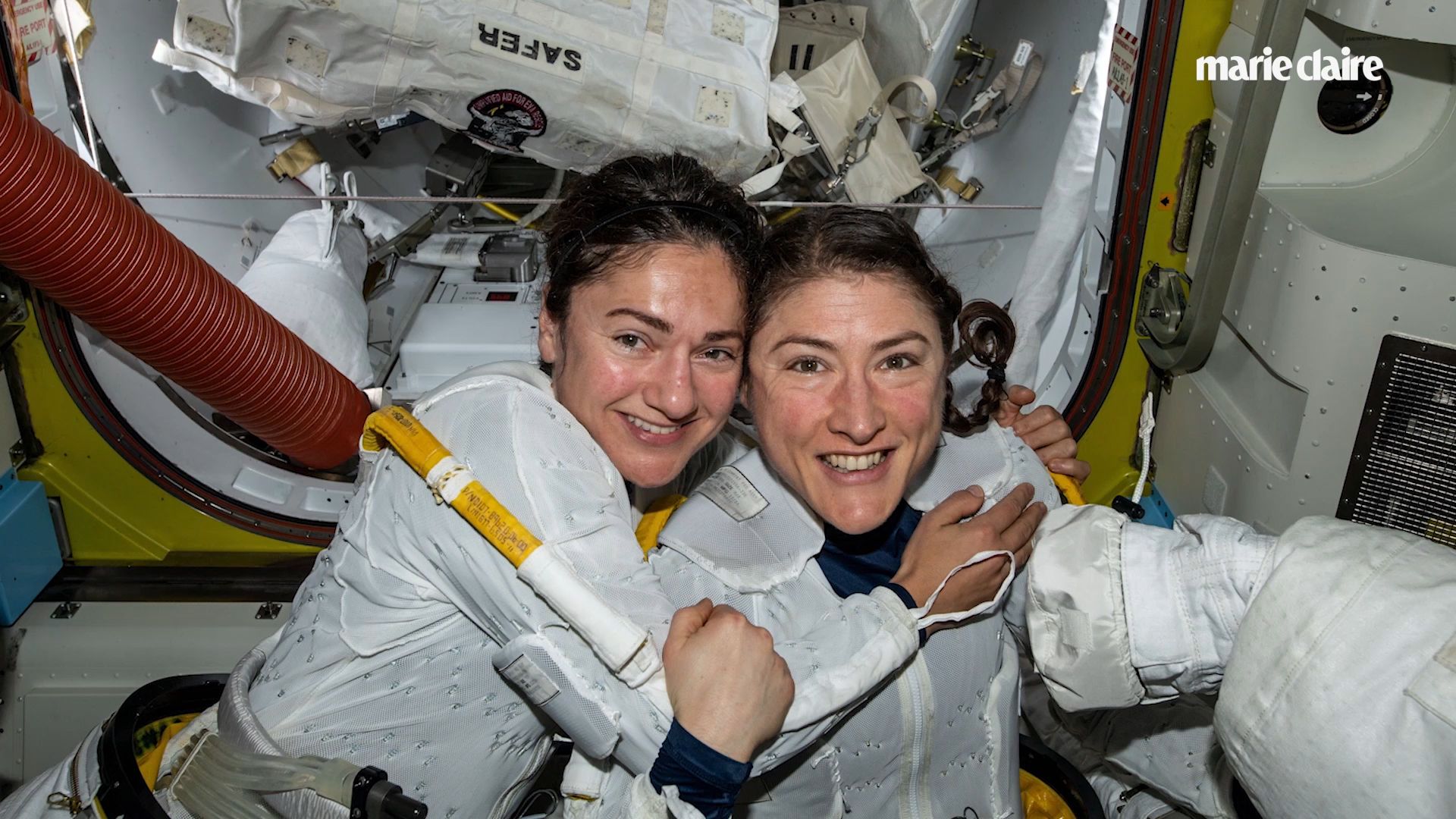
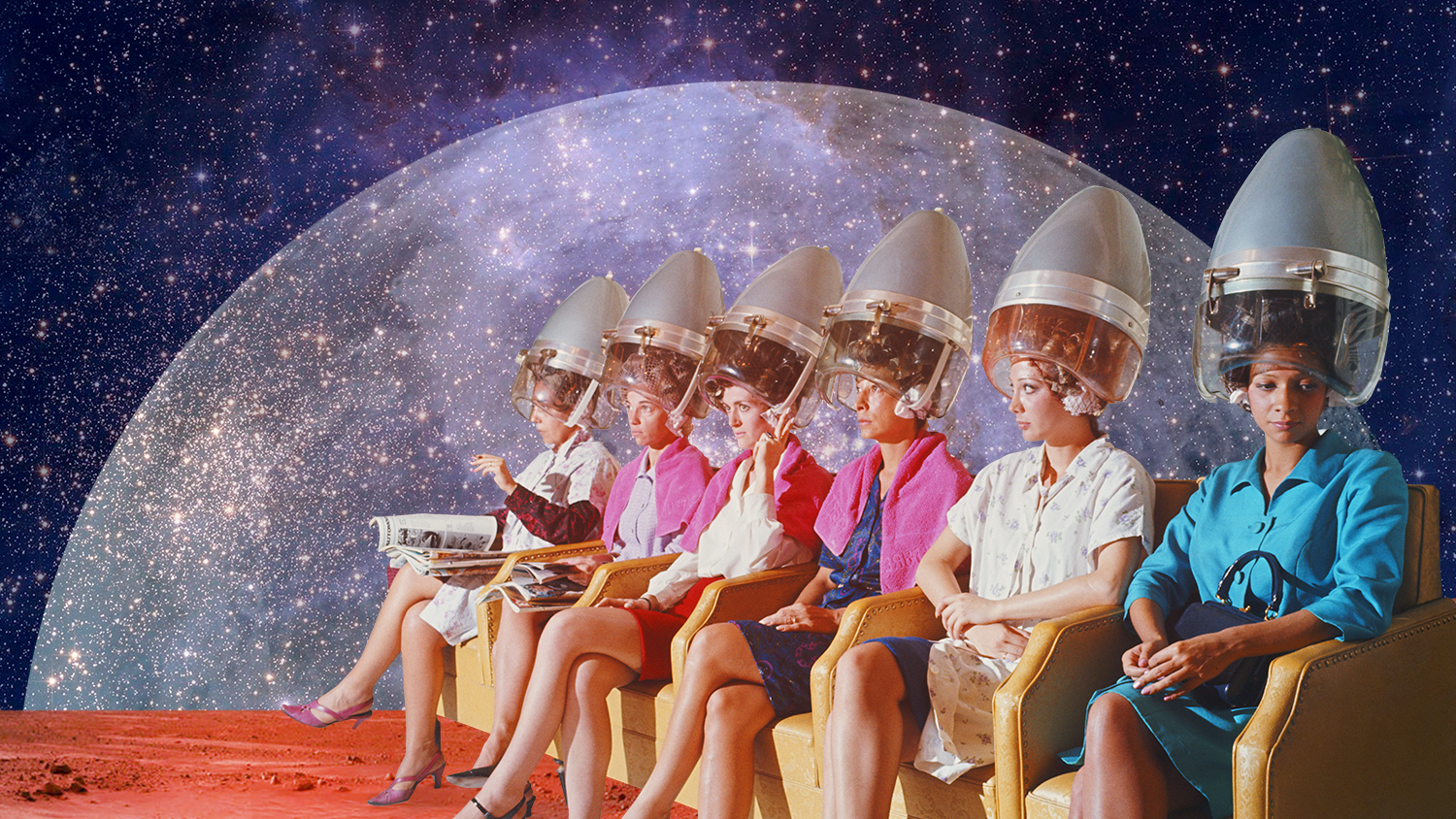
John Scott Lewinski covers lifestyle, travel, technology, liquor, fashion, and hard news for a variety of publications including BBC Travel, Max, The Atlantic, Fortune, Fast Company, Shape and Women’s Health.
